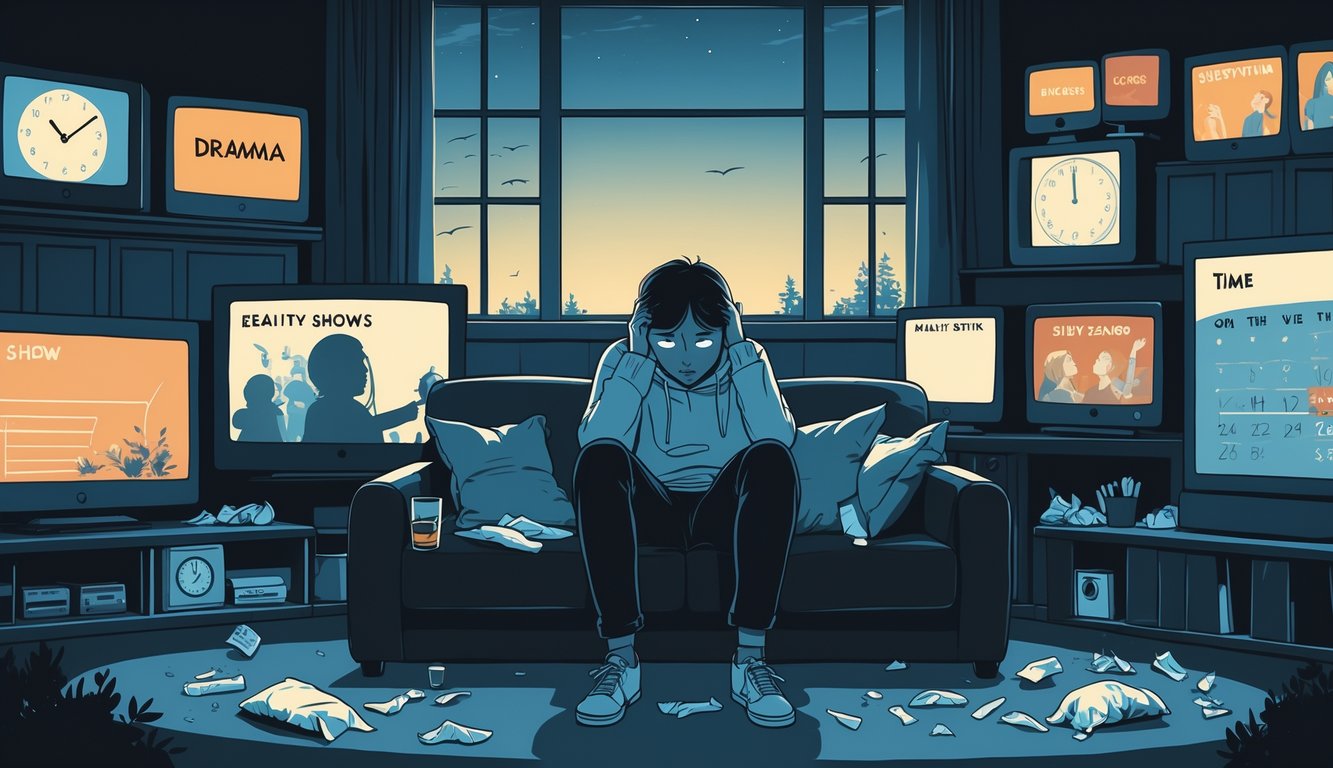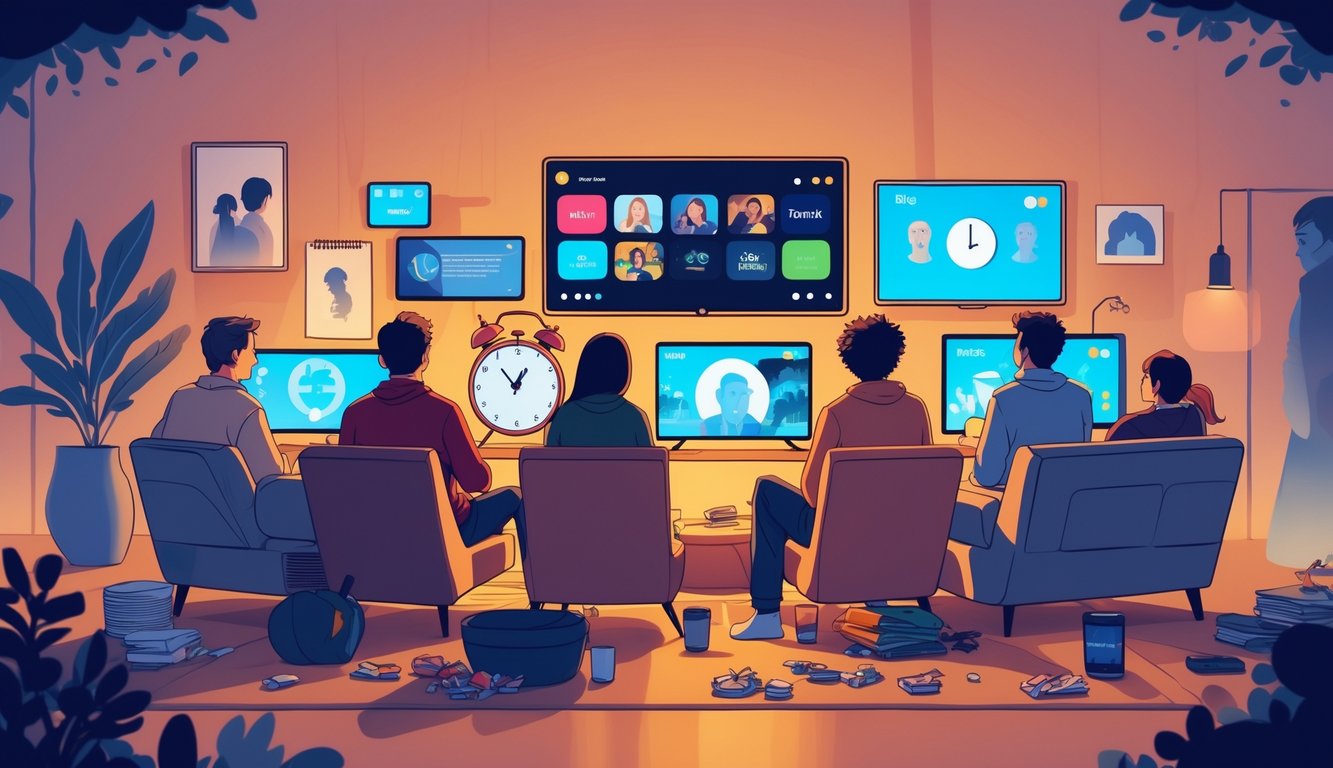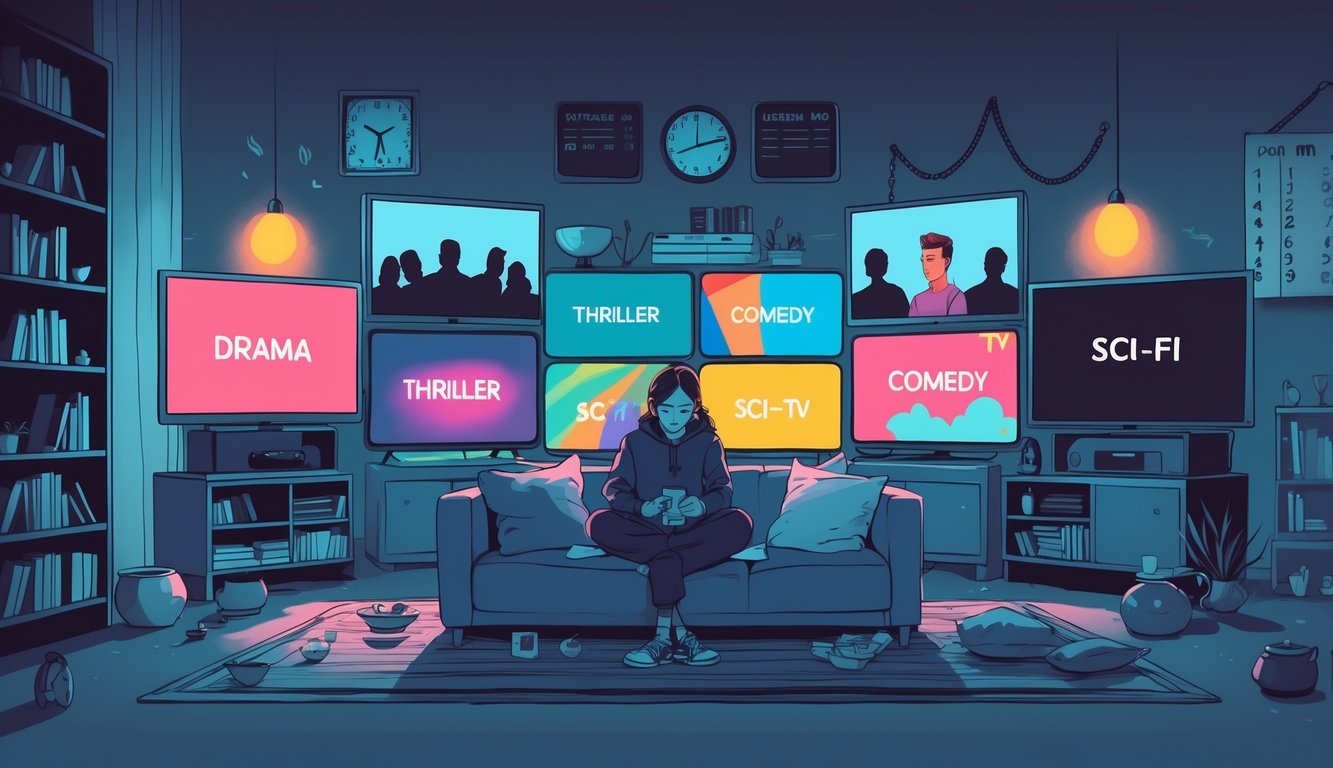
So, last weekend? I blinked and suddenly it’s eight hours later, the entire detective series gone, and my laundry pile’s still judging me from across the room. Honestly, nobody tells you how bingeing on, like, true crime or those psychological thrillers just chews through your cash and your brain faster than you can microwave popcorn. Supposedly, the “average American” clocks over six hours a week binge-watching (if you trust this breakdown), but I’m pretty sure I doubled that, plus forgot lunch and missed two calls from my boss. Oops.
My friend who’s a psychologist keeps insisting “streaming guilt” is a thing, which—okay, sure, but who’s actually adding up the cost of missed deadlines or, like, all those random $7.99 charges for subscriptions I swear I canceled? It’s not just the monthly fees or the slightly higher electricity bill—there’s the weird stuff: sleep debt, fried attention span, eye strain so bad my optometrist’s started giving me pamphlets. And let’s be real, these streaming platforms pretend it’s all about “choice,” but it’s just a bottomless pit for procrastinators and anyone who forgets to cancel those “free trials.” (Anyone? Just me?)
There’s this guy I know who literally schedules his bingeing, which sounds responsible until he admits his snack budget for one Sunday outpaces his gym membership. Genius. Is there even a way out of the next-episode trap? No clue. The stats say almost everyone under 40 just gives in (binge-viewing stats), and meanwhile, my bank account’s quietly dying and my inbox is basically a landfill.
Defining Binge-Watching and Its Modern Appeal

How does “just one more episode” turn into three hours gone and the sun’s down? Nobody’s reading the Netflix terms while they’re mashing Play Next, right? There isn’t even a single definition—some researchers say it’s about episode count, others about screen time, but I’m just over here rewatching the same sitcom for the fifth time and calling it “background noise.”
Evolution of Binge-Viewing Culture
Remember when TV made you wait a week between episodes? Nobody sat through six cliffhangers unless you were really committed to the VHS marathon life (and who’s got a working VCR now?). “Binge-watch” wasn’t even a word until 2003—and then, boom, Netflix dumps House of Cards in 2013 and suddenly we’re all couch zombies.
Researchers can’t agree on what counts as a binge (see this mess). Is it three episodes? Four? Who cares? It’s just a loop now: nostalgia, stress relief, and suddenly it’s midnight. Some behavioral scientist once told me our brains don’t really know the difference between real life and a marathon of fake drama. Honestly, after a K-drama dump, my back hurts worse than after actual exercise. And apparently, more than half of adults under 45 said they binge regularly as of 2019 (citation). Not exactly shocking.
Role of Streaming Services in Shaping Viewing Habits
Hulu, Amazon, Netflix—they’ve just hijacked my evenings. I used to cook, call people, have hobbies. Now it’s just one tap and the auto-play countdown dares me to stop. If I try to pause, the screen’s like, “Really?”
Streaming services know exactly what they’re doing—full-season drops, creepy-accurate recommendations, tracking what I watch so they can pounce the second a new season drops. Netflix even ran experiments with psychologists to make sure I never leave. (Not that they’re telling me how.)
But, apparently, binge-watching isn’t always “bad” (recent paper), like, technically you can watch a whole series with friends and be fine. Still, where’s the warning label? I’ve never seen one. The rules changed so fast my living room feels more like a layover for fictional drama than an actual place to relax.
Why Certain TV Genres Encourage Binge-Watching

Six episodes in a row? Yeah, I know it’s nuts. But some genres just trap you—no exit ramp, just endless chaos. Skip the credits, and before you know it, you’re sucked into another plot twist.
The Allure of Cliffhangers
I lose all self-control when a show drops a “To Be Continued…” at 1 a.m. Is it patience? Nah, it’s dopamine. There’s research showing unresolved plots hijack your brain and make you keep clicking. I found this study in the Journal of Experimental Psychology: Applied (link)—cliffhangers actually mess with your sense of time. I swear I’m just watching two episodes, but suddenly it’s sunrise and I’m surrounded by empty snack wrappers.
Genres like drama and thriller are the worst offenders—murder mysteries, supernatural nonsense, political thrillers (thanks, House of Cards). Showrunners literally brag about structuring their seasons to keep you stuck. Meanwhile, my calendar’s just collateral damage.
Genre-Specific Storytelling Techniques
Why does horror make me lock my doors, but sitcoms let me wander off? I read a review that says genres with serialized plots, big emotional swings, or tangled character arcs (dark fantasy, crime, teen drama) are basically engineered for bingeing (binge-watcher profiles). There’s a feedback loop: more tension, more storylines, less chance you’ll stop.
My dermatologist says I need seven hours’ sleep, but show creators build in these “peak-end” moments—big mysteries, new characters, cliffhangers mid-fight—so you can’t look away. If you chart it, the most “bingeable” shows (Black Mirror, Breaking Bad, The Witcher) always top the lists.
Viewer Recommendations and Algorithmic Influence
The algorithms? They’re evil geniuses. Netflix, Prime, all of them—they recommend “related” shows, but it’s not a suggestion, it’s a trap. They know my pace, my favorite genres—“Oh, you like mind-bending mysteries? Here’s ten more, starting in five seconds…”
Research backs this up: platforms shape how long we watch and what we watch. There’s even a study that sorts us into four binge-watcher types (behavioral profiles). I’ve been all four before lunch. The system doesn’t treat bingeing as a glitch—it’s the whole point.
The algorithms pick up on everything—skip the intro, rewatch a scene, and suddenly my recommendations are a weird funhouse. I’m skeptical, but honestly, it works. Especially when the genres are built for this—sci-fi, procedurals, whatever. If someone invents an algorithm that recommends sleep, let me know.



